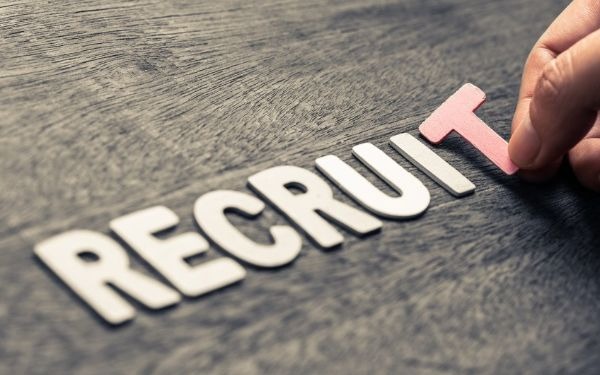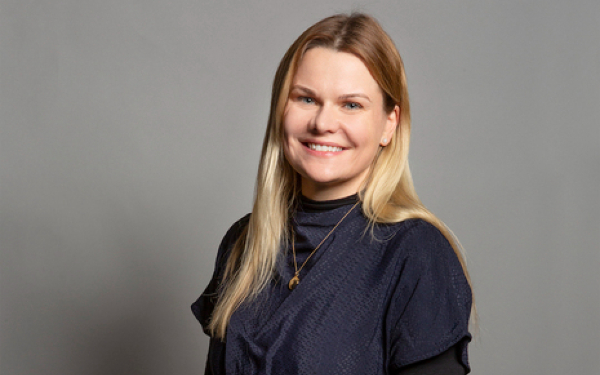
The Home Office has more than doubled the number of social workers it employs in its asylum age assessment service in the past year, a minister has revealed.
Victims and safeguarding minister Laura Farris told the House of Commons last week that “42 expert social workers” were now employed by the National Age Assessment Board (NAAB).
This is up from 16 as of April 2023, just after the board launched, when the Home Office was struggling to recruit social workers to the service.
What is the NAAB?
- The NAAB was set up under the Nationality and Borders Act 2022 (NBA) and consists primarily of social workers employed to carry out age assessments of age-disputed unaccompanied asylum seekers.
- These take place where: there is reasonable doubt about their claims to be children; they claim to be adults but are suspected to be children; they are accepted as children but there are doubts about their age.
- The NAAB will generally undertake assessments of age-disputed unaccompanied asylum seekers on referral from a local authority or health and social care trust in Northern Ireland.
- However, the board may also carry out assessments in other cases specified in the legislation, including where the Home Office doubts a local authority’s conclusion as to the person’s age, or to inform Home Office decision making on the person’s immigration status
- As with local authority social workers, NAAB assessors must carry out ‘Merton-compliant’ assessments, ie they should comply with the judgment in B v London Borough of Merton [2003]. This includes that the assessment is carried out by two social workers, where practicable, and that practitioners are trained and experienced in this area of practice.
More information is available from the Home Office’s guidance on the NAAB.
The Home Office had sought to recruit 40 social workers to the board in spring 2022, but a year later had just 40% of practitioners in post. When it launched, in March 2023, it started working in London and the West Midlands, with its main role being undertaking assessments on referral from local authorities in these regions.
BASW call for social workers to boycott board
This was just after the British Association of Social Workers had urged social workers not to work with the NAAB lest their professional judgment be undermined by the Home Office’s political agenda on asylum.
This was a reference to government rhetoric about single adult male asylum seekers exploiting the system and posing safeguarding risks by claiming to be unaccompanied children.
Guidance on age assessment practice and law
![]() Social workers can get expert advice on both the law and practice in relation to age assessments of unaccompanied asylum seekers, courtesy of Community Care Inform Children.
Social workers can get expert advice on both the law and practice in relation to age assessments of unaccompanied asylum seekers, courtesy of Community Care Inform Children.
Our guide to the law, policy and context covers the circumstances in which social workers would have to carry out an age assessment and their legal duties in doing so. It also includes relevant case law and recent and forthcoming legislative changes. It is written by Stewart MacLachlan, legal and policy manager for the Migrant Children’s Project within Coram Children’s Legal Centre.
Alongside this, we have published a guide to preparing for and conducting an assessments, which provides advice on considering the range of needs that the young person may have, conducting the interview and analysing information in order to reach a final decision.
Both are available to CC Inform Children subscribers.
More recently, BASW called for the NAAB to be scrapped, in its manifesto for the general election.
Increase in social worker numbers

Minister for victims and safeguarding Laura Farris (credit: HM Government)
However, the figures revealed by Farris show that the board now has just over the number of social workers in post that it originally intended to recruit.
“As well as conducting assessments for local authorities, the board supports them with training and best-practice advice,” she told MPs last week, in a debate on age-disputed asylum cases.
Despite its higher social worker numbers, the board is still only working with a select number of local authorities.
A Home Office spokesperson said: “We take the safety and welfare of unaccompanied asylum-seeking children extremely seriously, which is why the National Age Assessment Board’s experts conduct full age assessments to increase expertise in the asylum system.
“The board is also increasing the number of authorities who are able to refer assessments over the coming months, offering training across the UK, and providing local authorities with a national advice and support helpline.”
‘Scientific’ age assessments yet to be introduced
Farris also revealed that the government was yet to introduce the use of so-called scientific methods for assessing the age of unaccompanied claimants, alongside a social worker assessment.
While such assessments were previously prohibited, the NBA enables the Home Office to make regulations specifying methods that may be used, once it has deemed these appropriate after taking advice from a committee of expert advisers: the age estimation science advisory committee (AESAC).
Such regulations – the Immigration (Age Assessment) Regulations 2024 – came into force earlier this year. These authorise the use of X-rays of teeth and hand and wrist bones, and MRI scans of the collarbone and knee bones, as part of age assessments.
“The full plans for integrating scientific age assessments into the existing process will be set out very shortly,” Farris told the Commons.
Opposition to ‘unethical’ policy
The policy is vigorously opposed by health and social care professional bodies including BASW, the Royal College of Paediatrics and Child Health and the British Dental Association. This is on the grounds that it is unethical to expose people to radiation for a non-medical purpose and that any assessments based on scans would be inaccurate, and also because of serious concerns around consent.
Under the NBA, scientific methods may only be used with the consent of the young person or, where they lack capacity to do so, a specified person on their behalf. However, where there is a refusal to consent without “reasonable grounds”, the decision maker must take such a refusal as damaging to the person’s credibility.
This appears to run contrary to advice from the interim AESAC, in a report last year, which said “no automatic assumptions or consequences should result from refusal to consent”.
Impact of Illegal Migration Act and Rwanda law
Despite this advice, the government has gone even further in its Illegal Migration Act 2023 (IMA), by allowing ministers to make regulations that would result in claimants who refused a scientific assessment without reasonable grounds being treated as adults.
This would apply specifically to asylum seekers deemed to have come to the UK illegally – without permission to enter or remain and without having come directly from the country they were fleeing – but this accounts for the majority of claimants.
Farris told the Commons that this power would not be used “unless—and until—the home secretary determines that the science and analysis is sufficiently accurate to support providing for an automatic assumption of adulthood”.
However, the IMA also includes measures preventing relevant unaccompanied asylum seekers from appealing to the immigration tribunal against a decision to assess them as an adult, or from delaying their deportation by lodging a judicial review claim. These are not yet in force.
Now that the government’s Safety of Rwanda (Asylum and Immigration) Act 2024 has become law, an unaccompanied asylum seeker covered by the IMA and assessed as an adult could be deported to the east African state to have their claim processed.




 Bournemouth, Christchurch and Poole
Bournemouth, Christchurch and Poole  Hampshire County Council
Hampshire County Council  Lincolnshire County Council
Lincolnshire County Council  Norfolk County Council
Norfolk County Council  Northamptonshire Children’s Trust
Northamptonshire Children’s Trust  South Gloucestershire Council
South Gloucestershire Council  Wiltshire Council
Wiltshire Council  Wokingham Borough Council
Wokingham Borough Council  Children and young people with SEND are ‘valued and prioritised’ in Wiltshire, find inspectors
Children and young people with SEND are ‘valued and prioritised’ in Wiltshire, find inspectors  How specialist refugee teams benefit young people and social workers
How specialist refugee teams benefit young people and social workers  Podcast: returning to social work after becoming a first-time parent
Podcast: returning to social work after becoming a first-time parent  Podcast: would you work for an inadequate-rated service?
Podcast: would you work for an inadequate-rated service?  Family help: one local authority’s experience of the model
Family help: one local authority’s experience of the model  Workforce Insights – showcasing a selection of the sector’s top recruiters
Workforce Insights – showcasing a selection of the sector’s top recruiters 

 Facebook
Facebook X
X LinkedIn
LinkedIn Instagram
Instagram
I would’ve thought that SWs would be subject to an unspoken moral code such that they would not take this sort of job. This issue has a new/added dimension in that Ireland is planning to return asylum seekers from the UK across the border back into N Ireland. What plans is the Home Office making to manage young people caught up in this new dilemma?